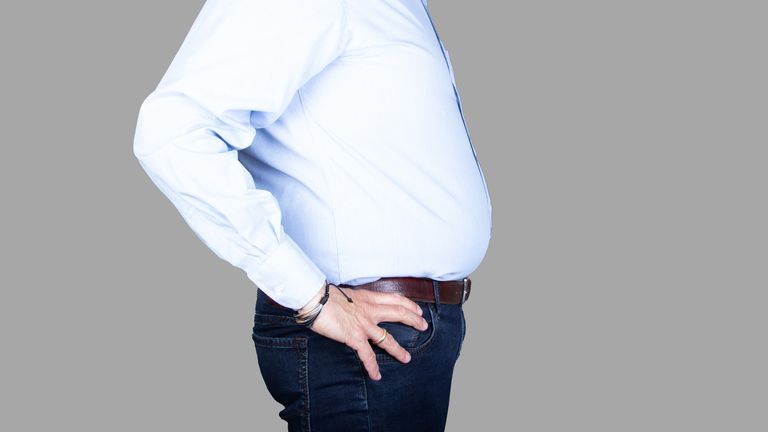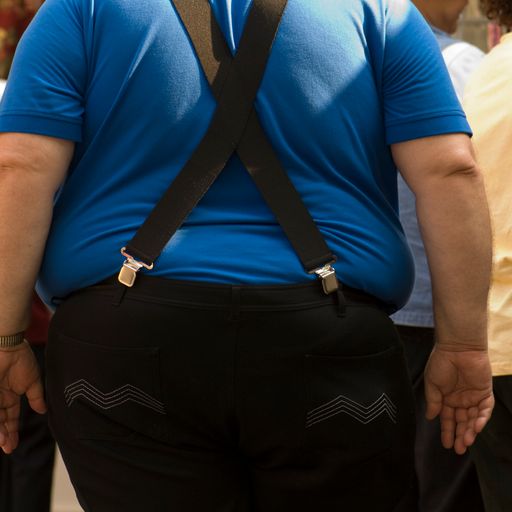Overeating 'not the primary cause of obesity', claim scientists
Significant links between obesity and deprivation add evidence to an argument that low-quality food, in particular processed carbohydrates, are driving weight gain.
Monday 13 September 2021 15:08, UK
Overeating is not in fact the primary cause of obesity, according to a new perspective on weight gain published by scientists.
Obesity affects more than 40% of American adults, according to the US Centers for Disease Control and Prevention, and 28% of adults in England, according to the Health Survey for England 2019.
This places a significant proportion of the population at greater risk of heart disease, stroke, type two diabetes, and certain types of cancer - and obesity is more likely to affect people living in deprived areas.
NHS data suggests that more than 11,000 hospital admissions over 2018-19 were directly attributable to obesity - and admissions where obesity was a factor were around two and half times more likely in the most deprived areas compared to the least deprived areas.
A new paper explaining the causes has been published in the American Journal of Clinical Nutrition, claiming there are fundamental flaws in the energy balance model, and tying obesity to the consumption of low-quality food and processed carbohydrates.
The authors argue that an alternate model, the carbohydrate-insulin model, better explains obesity and points the way to more effective and long-lasting weight management strategies.
Lead author Dr David Ludwig, an endocrinologist at Boston Children's Hospital and professor at Harvard Medical School, says that the energy balance model doesn't explain the biological causes of weight gain.
"During a growth spurt, for instance, adolescents may increase food intake by 1,000 calories a day," he says. "But does their overeating cause the growth spurt, or does the growth spurt cause the adolescent to get hungry and overeat?"
The new model placed the blame for the obesity epidemic on "modern dietary patterns characterised by excessive consumption of foods with a high glycaemic load: in particular, processed, rapidly digestible carbohydrates".
"These foods cause hormonal responses that fundamentally change our metabolism, driving fat storage, weight gain, and obesity," according to the model.
"When we eat highly processed carbohydrates, the body increases insulin secretion and suppresses glucagon secretion. This, in turn, signals fat cells to store more calories, leaving fewer calories available to fuel muscles and other metabolically active tissues.
"The brain perceives that the body isn't getting enough energy, which, in turn, leads to feelings of hunger. In addition, metabolism may slow down in the body's attempt to conserve fuel. Thus, we tend to remain hungry, even as we continue to gain excess fat."
Rather than urge people to eat less, a strategy which the scientists say doesn't work in the long run, the carbohydrate-insulin model suggests another path that focuses more on what we eat.
According to Dr Ludwig, "reducing consumption of the rapidly digestible carbohydrates that flooded the food supply during the low-fat diet era lessens the underlying drive to store body fat", and "as a result, people may lose weight with less hunger and struggle."




